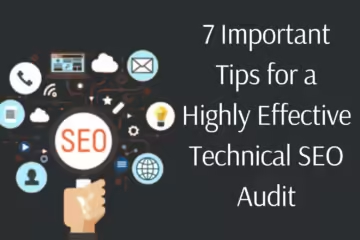Introduction of Online Marketing
Internet marketing, also known as online marketing, digital marketing, or web marketing, is the practice of promoting products or services online using various digital channels. These channels may include search engines, social media, email, websites, mobile apps, and other digital media platforms. Internet marketing has become an essential part of any modern business, as it allows companies to reach a wider audience and engage with potential customers in a cost-effective manner. In this article, we will explore the various aspects of Internet marketing and how businesses can use them to achieve their marketing goals.
Search Engine Optimization (SEO):
Search engine optimization, or SEO, is the practice of optimizing a website to rank higher in search engine results pages (SERPs). SEO involves various techniques, such as keyword research, on-page optimization, link building, and content creation. The goal of SEO is to increase the visibility of a website in search engine results pages and drive organic traffic to the site.
Keyword research is the process of identifying the keywords and phrases that potential customers use to search for products or services related to your business. On-page optimization involves optimizing the content of a website for specific keywords and phrases. This includes optimizing the title tags, meta descriptions, header tags, and content on each page.
Link building is the practice of acquiring backlinks from other websites. Backlinks are links that point to your website from other websites. The more high-quality backlinks a website has, the more authoritative and trustworthy it appears to search engines.
Content creation is an essential part of SEO. Content should be high-quality, informative, and engaging. It should be optimized for specific keywords and phrases and should provide value to potential customers.
Social Media Marketing (SMM):
Social media marketing, or SMM, is the practice of using social media platforms to promote a business or product. Social media platforms such as Facebook, Twitter, LinkedIn, and Instagram are popular channels for SMM. SMM involves creating content that is specifically designed for social media platforms and engaging with potential customers through social media channels.
The key to a successful SMM is to create engaging and shareable content. This includes images, videos, and blog posts that are informative, entertaining, or both. Social media is an excellent way to build a community around a brand and engage with potential customers on a more personal level.
Email Marketing:
Email marketing is the practice of sending marketing messages or newsletters to a targeted list of subscribers via email. Email marketing is an effective way to build relationships with potential customers and promote products or services. Email marketing can be used to promote new products or services, offer discounts or promotions, and keep customers informed about company news or events.
The key to successful email marketing is to build a targeted list of subscribers who are interested in your products or services. This can be done through lead magnets such as free eBooks or whitepapers that are offered in exchange for contact information.
Content Marketing:
Content marketing is the practice of creating and sharing content with the goal of attracting and retaining customers. Content marketing includes blog posts, videos, infographics, eBooks, whitepapers, and more. The goal of content marketing is to provide value to potential customers and establish the business as a thought leader in its industry.
The key to successful content marketing is to create high-quality content that provides value to potential customers. Content should be informative, engaging, and shareable. Content marketing can be used to build brand awareness, drive traffic to a website, and establish a business as a trusted authority in its industry.
Pay-Per-Click Advertising (PPC):
Pay-per-click advertising, or PPC, is a form of online advertising where advertisers pay a fee each time a user clicks on one of their ads. PPC ads appear at the top of search engine results pages and can be highly targeted based on keywords, location, and other factors
PPC advertising is an effective way to drive targeted traffic to a website and increase conversions. The most popular PPC platform is Google Ads, which allows advertisers to create and run ads on Google search results in pages and the Google Display Network.
The key to successful PPC advertising is to create highly targeted ads that are relevant to the user’s search query. Advertisers should use relevant keywords, ad copy, and landing pages to ensure that users find what they are looking for when they click on the ad. PPC advertising can be expensive, so it’s essential to monitor and optimize campaigns regularly to ensure that they are profitable.
Influencer Marketing:
Influencer marketing is the practice of partnering with influential individuals on social media to promote a product or service. Influencers are individuals who have a large following on social media platforms and are seen as experts in their field. Influencer marketing involves identifying relevant influencers, reaching out to them, and negotiating a partnership agreement.
The key to successful influencer marketing is to choose influencers who are relevant to your industry and have a large following of engaged followers. Influencer marketing can be a highly effective way to reach a new audience and increase brand awareness.
Affiliate Marketing:
Affiliate marketing is the practice of promoting a product or service through an affiliate network. Affiliates are individuals or businesses who promote a product or service on their website or social media platform in exchange for a commission on sales. Affiliate marketing involves identifying relevant affiliates, negotiating commission rates, and providing promotional materials.
The key to successful affiliate marketing is to choose affiliates who have an audience that is relevant to your industry and product. Affiliate marketing can be a cost-effective way to reach a new audience and increase sales.
Conclusion:
Internet marketing is a vital part of any modern business. By using the various digital marketing channels available, businesses can reach a wider audience, engage with potential customers, and increase sales. The key to successful Internet marketing is to create high-quality content that provides value to potential customers, build targeted email lists, and create highly targeted campaigns that reach the right audience. By using the techniques discussed in this article, businesses can create effective Internet marketing campaigns that help them achieve their marketing goals.
Keywords:- online marketing, business growth, digital marketing, internet advertising, social media marketing.











